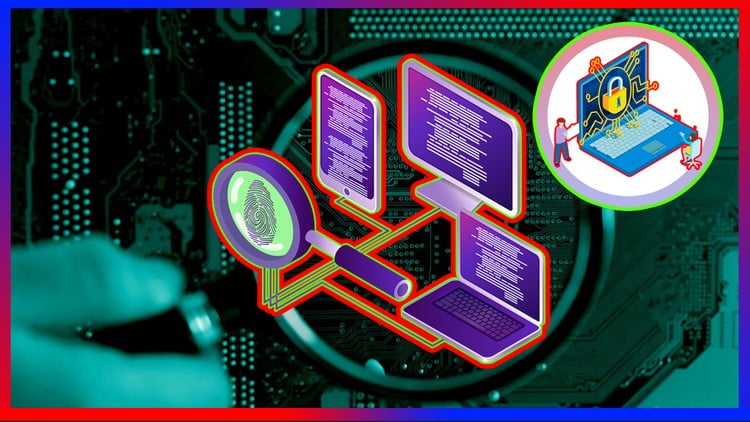
Learn computer forensics, digital forensics, mobile forensics, windows forensics, linux forensics and other forensics.
⏱️ Length: 18.8 total hours
⭐ 4.01/5 rating
👥 81,941 students
🔄 January 2025 update
Add-On Information:
Note➛ Make sure your 𝐔𝐝𝐞𝐦𝐲 cart has only this course you're going to enroll it now, Remove all other courses from the 𝐔𝐝𝐞𝐦𝐲 cart before Enrolling!
- Strategic Investigative Methodology: Develop a robust, adaptable framework for approaching diverse digital crime scenes, ensuring comprehensive evidence collection and analysis across various platforms and scenarios.
- Deep Dive into OS Artifacts: Master intricate details of Windows Registry analysis, Linux log parsing, macOS specific artifacts, and hidden data structures crucial for pinpointing user activity and system events.
- Advanced Data Recovery & Unveiling Hidden Information: Acquire specialized techniques for salvaging fragmented, corrupted, or deleted data, including sophisticated carving, and learn to detect data concealment methods like steganography and encrypted volumes.
- Practical Toolset & Workflow Optimization: Gain hands-on experience with industry-standard and open-source tools, developing efficient investigative workflows and leveraging automation for large-scale data analysis.
- Mobile Device Deep Analysis: Delve into advanced mobile acquisition techniques (e.g., JTAG, chip-off), app data analysis, and overcoming device encryption and security measures to extract crucial evidence.
- Cloud & Virtualization Forensics: Understand unique complexities of investigating incidents in cloud service environments and virtualized infrastructure, including data segregation and specific acquisition strategies.
- Network Traffic Analysis for Reconstruction: Master capturing, analyzing, and interpreting network packet data to reconstruct attack timelines, identify malicious patterns, and trace adversary movement.
- Professional Reporting & Expert Witness Prep: Develop compelling, legally sound forensic reports, articulating complex technical findings clearly, and preparing for potential expert witness testimony.
- Malware Triage & Emerging Threat Investigation: Learn foundational techniques for assessing suspicious files, understanding malware behavior, extracting IOCs, and exploring methodologies for novel threats involving IoT and blockchain.
- PROS:
- Comprehensive Skill Development: Equips learners with a broad spectrum of in-depth skills, from fundamental concepts to advanced investigative techniques across multiple operating systems and device types.
- Practical, Hands-on Approach: Focuses on practical application, tool usage, and real-world scenarios, preparing students for immediate professional deployment in digital forensics roles.
- Up-to-Date Content: The January 2025 update indicates a commitment to keeping the course material current with evolving technologies and cyber threats, ensuring relevance in a rapidly changing field.
- High Student Engagement & Rating: With 81,941 students and a 4.01/5 rating, it suggests a well-received course providing value to a large learner base.
- Flexibility & Accessibility: An 18.8-hour duration makes it manageable for professionals, offering a substantial learning experience that can be integrated into busy schedules.
- CONS:
- Broad Scope vs. Depth: While comprehensive, covering a vast array of topics in 18.8 hours may mean certain advanced areas are introduced rather than explored with extreme depth, requiring further self-study for niche specializations.
Learning Tracks: English,IT & Software,Network & Security
Found It Free? Share It Fast!